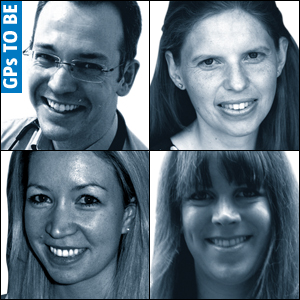For those unfamiliar with the current three-year model of GP training, trainees are formally assessed approximately 15 times per six month period by a mix of hospital doctors, fully qualified GPs, peers and patients. We are required to do COTs, CBDs (best done on patients who need an MDT), CEXs, DOPS (including BM) and even PSQs and MSFs. Towards the end of training are two more thorough and standardised assessments – the AKT (which is an MCQ consisting of SBA or EMQs on the NHS) and the CSA, which tests our ability to identify ICE in PMR or CJD.
The latter exam is based at the RCGP in NW1, and costs just upward of £1700 per sitting.This made my HSBC go WTF.
Other than being extremely useful for Scrabble, being consistently scrutinised and examined has taught me one thing – I’m still terrified of exams. From my first spelling test to the forthcoming Clinical Skills Assessment (CSA), I seem to go through the same stages of exam preparation.
The CSA is effectively a mock morning surgery and I have already passed the stage of blissful ignorance where the day itself seems as distant as retirement. What followed was a short but pleasing feeling of ‘I’ve done fine so far, and so long as I do what I do every day I’ll have no problems’.
After that comes the least enjoyable part, and what spurred me to write these very words. I can’t think of another word to describe it other than panic. Essentially, I convince myself that I will be physically unable to speak to the actor portraying the patient – so much so that the examiner might think I have expressive dysphasia and become confused over who is pretending to be the patient.
In today’s surgery, I dealt with a demanding patient, a case of eczema, someone with memory difficulties and counselled a lady about warfarin – all very feasible CSA cases.
But put me in an exam and give me a piece of paper bearing the words ‘23-YEAR-OLD WOMAN COMES IN FOR PILL CHECK’, and you might as well have written ‘MUTE LITHUANIAN REQUIRES EXPLANATION OF PROCTOSCOPY VIA BRITISH SIGN LANGUAGE’. What happens every day as a relaxed, natural consultation becomes a jilted interrogation, which leaves the 23-year-old reeling and me prescribing canagliflozin by mistake.
I am grateful to have two supportive and reassuring trainers, who repeatedly tell me to relax and be myself, and I’m also part of an enjoyable CSA revision group, which provides peer support and, more importantly – fun. Fortunately, I’m past the panic phase now and onto the burnout period where I’ve worked myself into such a frenzy I can’t bring myself to care enough. Hopefully, I am finding the balance between a natural performance and one that meets CSA criteria similar to that needed for the driving test (in which I got two minors, only one of whom still needs orthopaedic input).
Bizarrely, if I pass the CSA it would be mean being turfed into the world of job-hunting, whereas humiliating failure is rewarded by an extension of training and guaranteed employment for a few more months. Such ignominy might mean I could keep longer appointments and continue spending time with friends in tutorials. The deanery would continue to subsidise my indemnity and provide me with one-on-one supervision in daily practice. In some ways, being a real GP who doesn’t have these luxuries makes me more apprehensive than the exam does.
As I write this, I feel a resigned weariness that if I’m no good now after 10 years of training, then the next few weeks aren’t going to turn me into Dr Karl Kennedy from Neighbours.
Similarly, if I’ve muddled through up until this point I hope there’s enough left in me to clamber over this final hurdle. Having already worked through my pre-exam stages with a month to go, perhaps now is a good time to take stock and reflect upon the wise words of Dr Pepper.
What’s the worst that could happen?
Dr Danny Chapman is a GPST3 in Exeter.
Pulse October survey
Take our July 2025 survey to potentially win £1.000 worth of tokens













